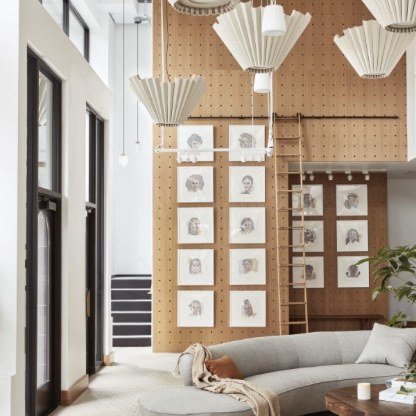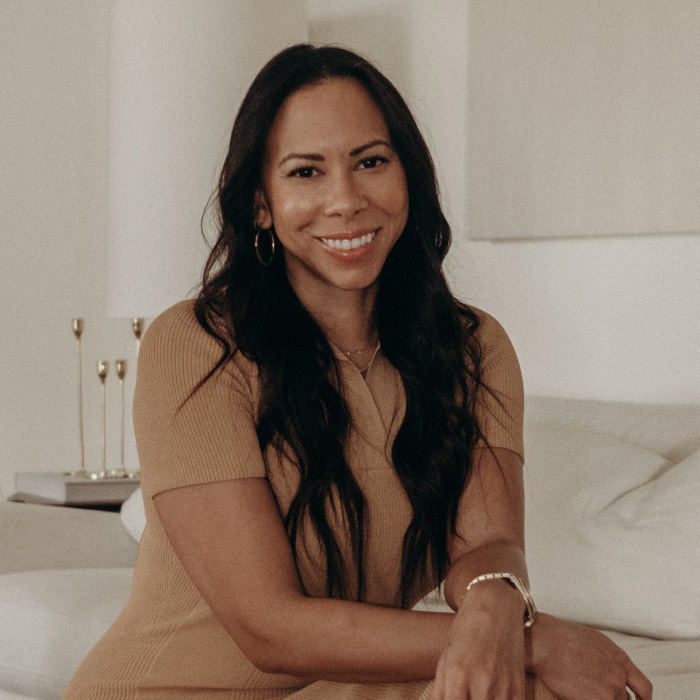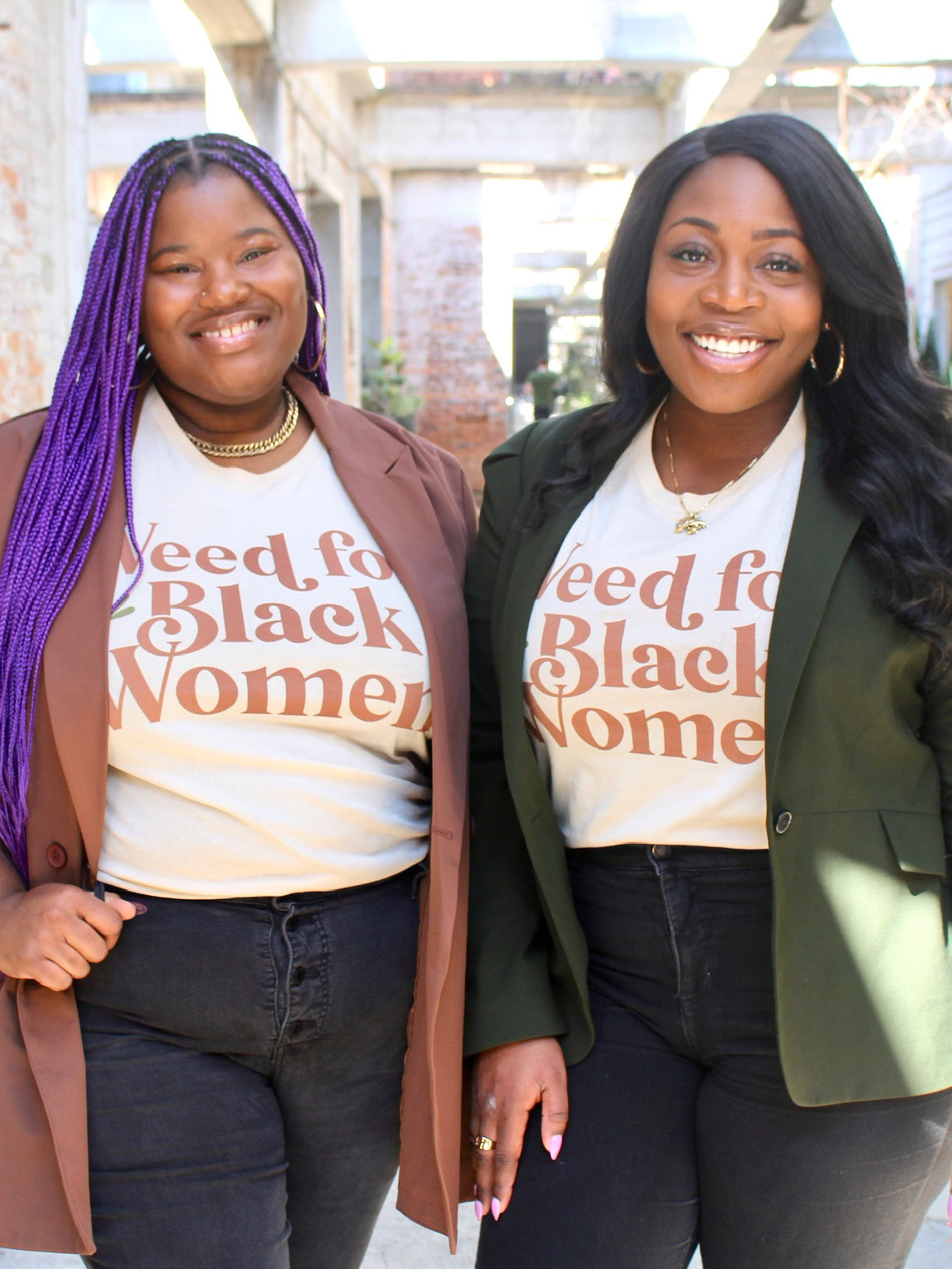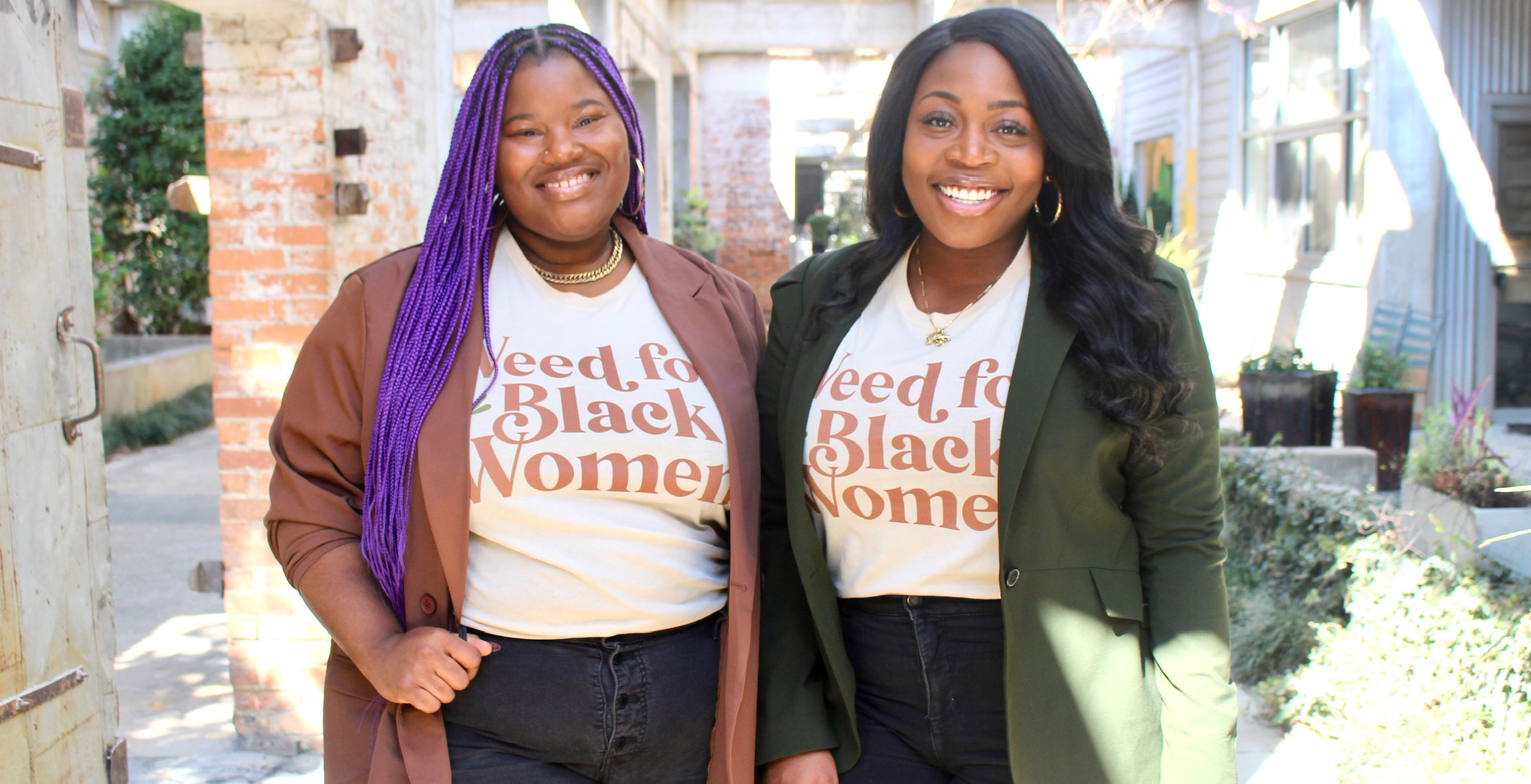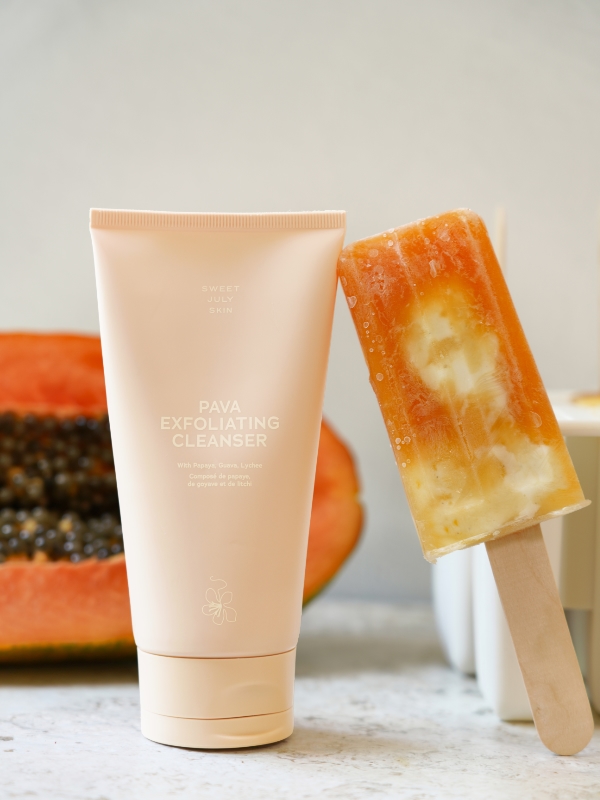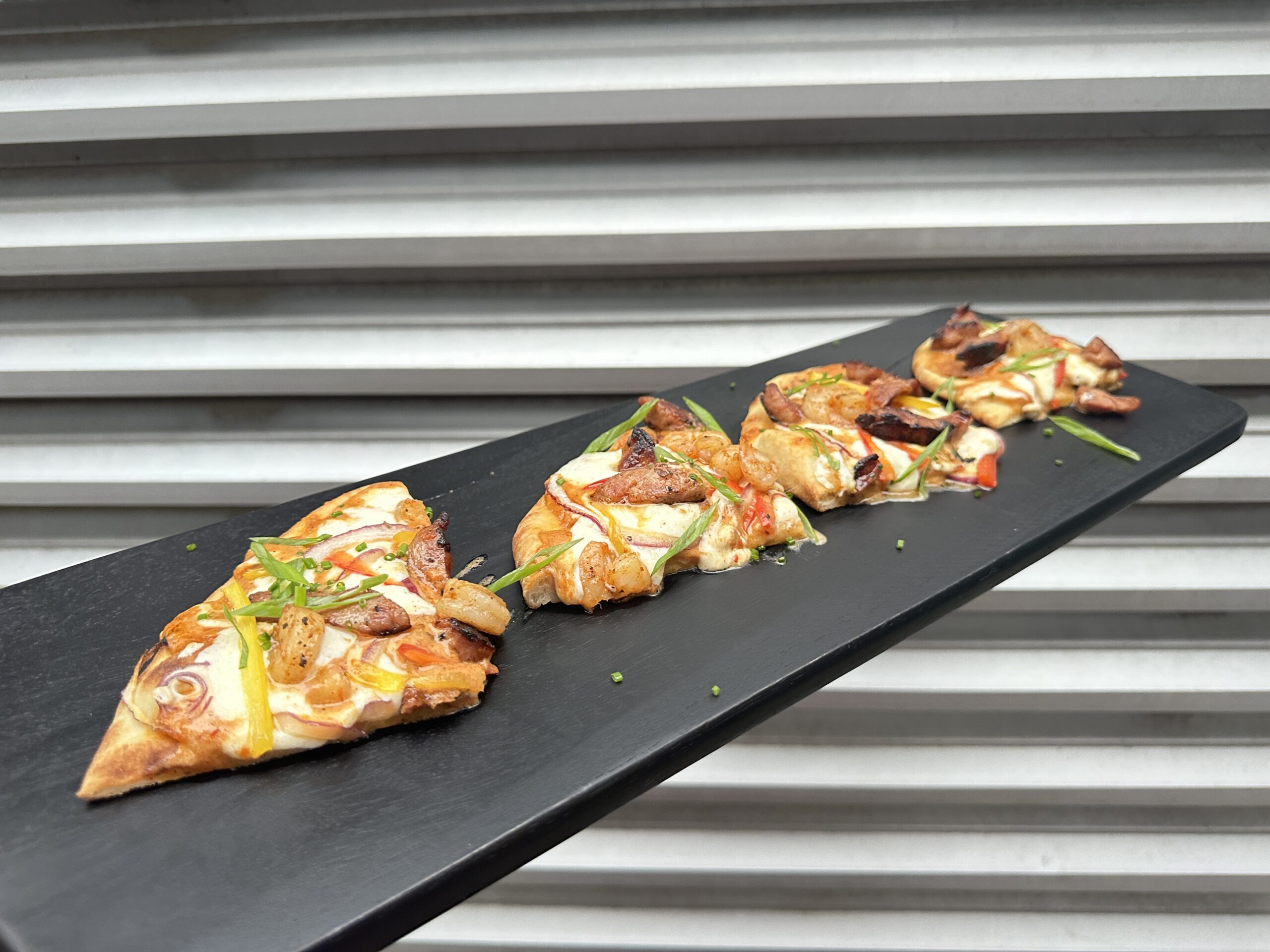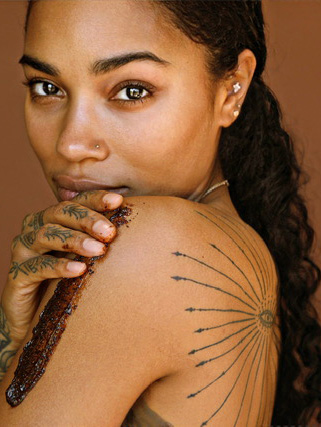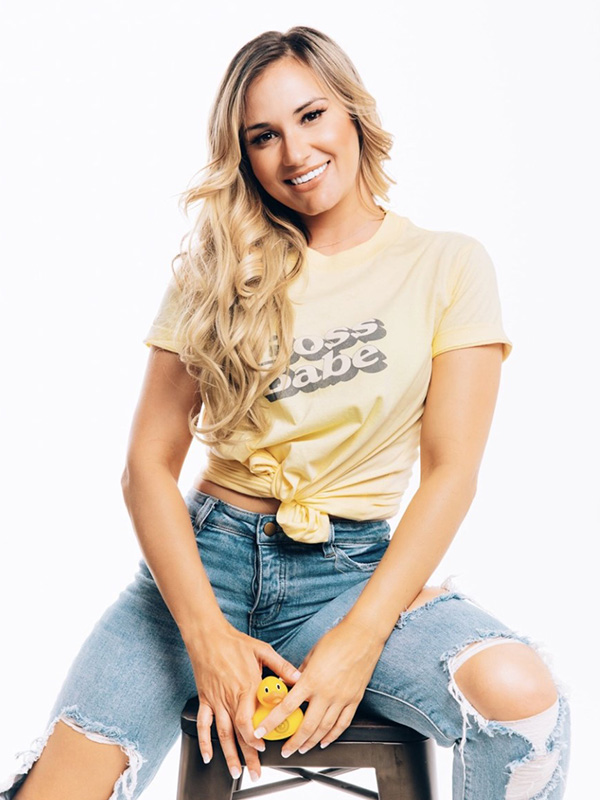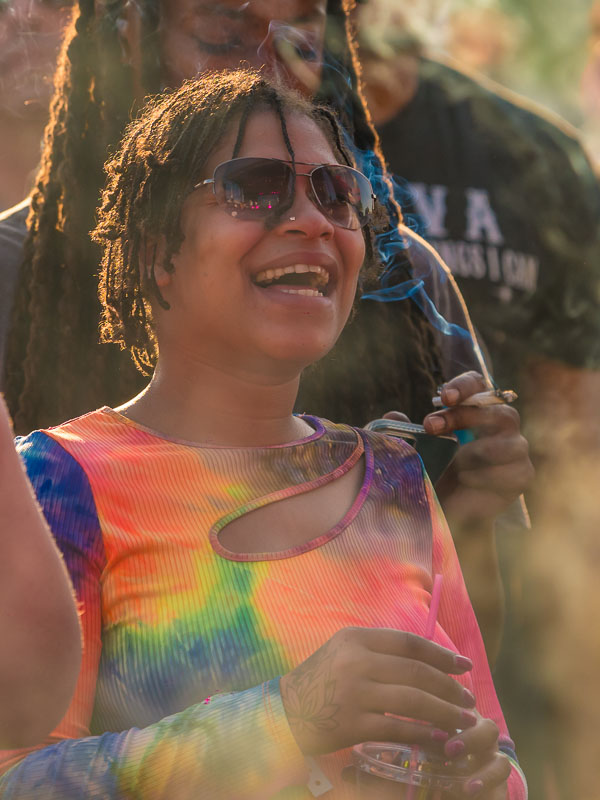Think owning a cannabis company is all recreation, all the time? Think again.
Sure, the weed space is exciting—and booming—but it’s a tough world, especially for Black women. We are excluded from opportunities, ignored in conversations, and severely underfunded. A measly 2 percent of US cannabis businesses are owned by Black people, mostly due to unfair licensing practices and a serious lack of access to capital. (It also doesn’t help that Black people are 3 times more likely to be arrested for marijuana possession, though we consume at similar rates to white people.)
The good news: there are women out there actively working to dismantle a system that’s designed to leave them out.
Take Whitney Beatty, whose first-of-its-kind dispensary caters to women of color; Mary Pryor, who is shedding light on the demise of DEI in cannabis; and “Weed Auntie” Solonje Burnett, who’s committed to creating spaces for education and empowerment.
They are rewriting the rules of the industry, determined to break down stereotypes and erase stigmas around weed in Black communities. Read on to get better acquainted with them and three other leaders helping us responsibly elevate our relationships with cannabis.
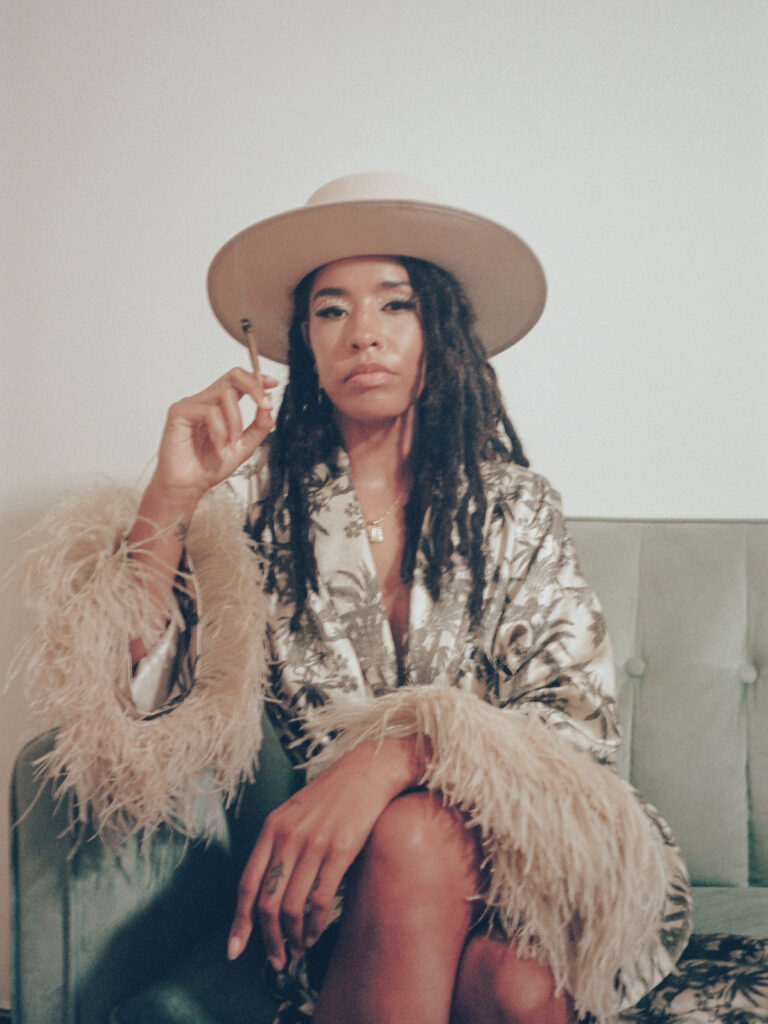
Vic Styles is a stylist, podcaster, and the founder of Black Girls Smoke, a digital community that helps women “reach their highest potential while getting high.” BGS is changing the way we think about Black women and cannabis through content, resources, and a very aesthetically pleasing Instagram feed that normalizes Black women interacting with cannabis in everyday settings. It’s also bringing them together IRL with events like Puff in The Park, an annual 4/20 celebration that made headlines and saw more than 1,000 attendees in 2023.
“It’s been beautiful to see the growth and the convening of community,” Styles tells Sweet July. “To see Black women filled with joy, puffing in the park, protesting unfair consumption laws, and vibing to amazing music is something straight out of a dream.”
Early on, Styles would often consume alone—“Most of my friends and family subscribed to the negative narratives about cannabis,” she says—but she was introduced to a new type of canna-culture after moving to LA from Alabama. “The plant was regulated and celebrated in ways I had never experienced. I saw firsthand how it could be elevated and luxurious.”
Once she left the wild West for NYC, before legalization, Styles was “quickly reminded of the stigmas surrounding the plant.” Armed with a background in media and marketing, she was confident she could weed out the negativity around cannabis and educate people on the benefits instead. In 2020, Black Girls Smoke was born. “It was the perfect way for me to merge my storytelling skills with my passion for Mary Jane,” says Styles.
That passion has translated into a thriving community of more than 50k followers who feel seen and supported in an industry with seemingly endless deterrents. “There is an overall lack of respect for women in this space,” adds Styles. “This is a boys’ business, and it can often be uncomfortable being the only woman in the room.”
Her advice for other Black women who want to break into the business is refreshingly straightforward: “Whatever the idea is, please do it. We need you. The industry needs to be revived,” she says. “There is space for you, and our communities are yearning for whatever it is you have to offer.”
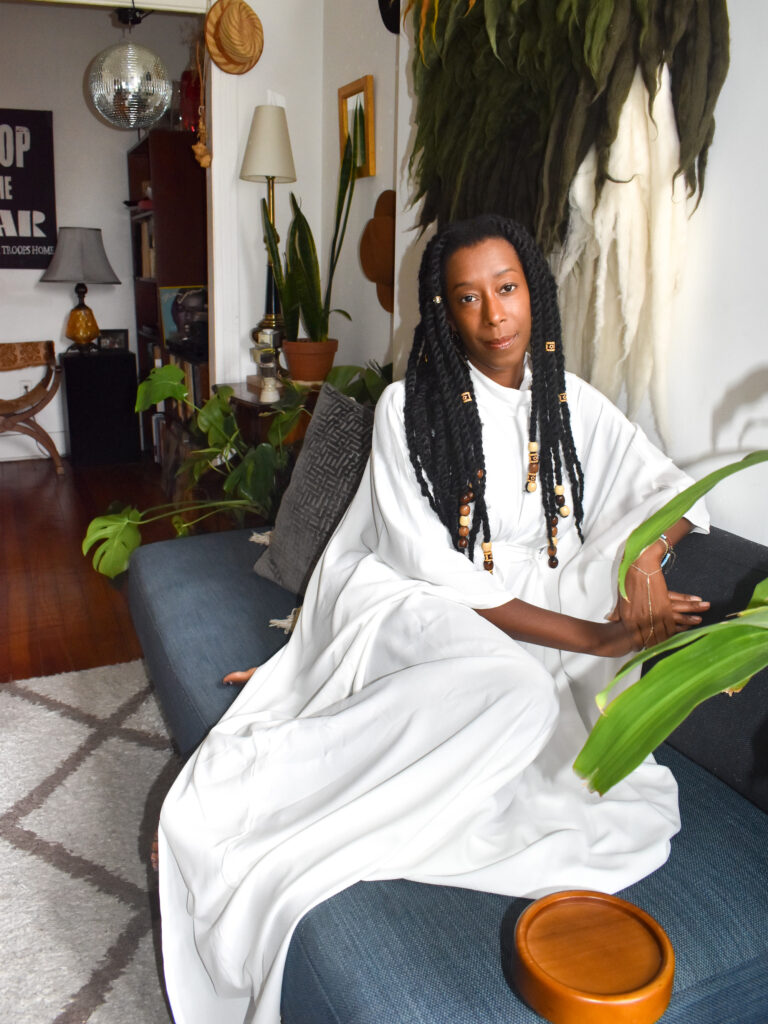
We are firmly in the age of the auntie, and the cannabis industry has its own version.
Weed Auntie Solonje Burnett is part cultural curator, part community builder. From wellness events and content partnerships to intimate brunches and brand training, the Bushwick, NY-based cannabis advocate is redefining how we interact with and understand the plant. She also co-founded Erven, a data analytics platform that enables cannabis retail operators to share product performance data with brand vendors and leans into “collaborative over competitive” insights.
“Cannabis touches on everything from racial inequity, reparative justice, regenerative agriculture, and access to medicine,” Burnett tells Sweet July. “I saw an opportunity to make an impact and influence this industry through education and experience—creating conscious consumers or more generally thoughtful humans who care.”
Burnett hasn’t had it easy over the course of her cannabis career. “As a first-generation Caribbean-American Black woman, I routinely face racism, colorism, and featurism,” she says, citing being ignored in conversations or excluded from opportunities. “Black femmes are rarely invited to participate, and if we are, we likely bear the burden of being the race representative.”
However, she notes “a slight shift” in this dynamic since launching Erven in 2023. “Instead of being relegated to panels about the layers of my identity—being Black, a woman, social justice—I’m now placed in conversation due to my expertise in the ancillary space,” says Burnett.
For Weed Auntie, cannabis is a pathway to deeper compassion and wellness. When paired with other healing practices like sound baths and meditative breathwork, its power is also amplified. “We can connect to ourselves and each other through our love of the plant and all it touches,” Burnett says.

Brooklyn-based advertising boss Mary Pryor co-founded the brand consulting collective Cannaclusive in 2017, carving a niche in marketing and business advocacy within the weed space. Cannaclusive has ensured people of color are recognized as valuable allies in the movement, through stock photography, curated experiences, and The Accountability List, which held cannabis brands responsible for their lack of action during 2020’s Black Square Summer. The team also created Cannabis for Black Lives, a coalition of businesses driving focus to equity in cannabis.
Since then, the industry has exploded, and Pryor has seen behind the green curtain. In 2023, after consuming a cannabis product and ending up in the hospital, she began researching plant diseases that were spreading out in groves. “I started reading about and seeing products that weren’t cured correctly, or that were on sale and not properly tested,” Pryor tells Sweet July. “People don’t know what they’re getting anymore…If the medicine is corrupted, you’re making your body sick.”
So, Pryor’s role in the industry has shifted to one centered on education; she’s focused on warning others about harmful products and “concerning” declines in quality testing, grow practices, and DEI programs. Her documentary, Kiss My Grass, recently debuted at SXSW and boasts Rosario Dawson and Colin Kaepernick as executive producers. The film “unveils the stark reality of persistent inequity” in cannabis.
“We get to see what’s happening from the lens of white investment, but a lot of business owners are entering a space where you can’t beat the street,” Pryor says. “[The industry is] pushing out people that care about the plant’s integrity, and just focusing on the numbers.”
Cannaclusive will soon be shifting its focus to climate sustainability, wellness, and getting people back to the land, whether they’re growing cannabis or kale. “Grow a plant inside your house and trust the medicine in your hands,” says Pryor.
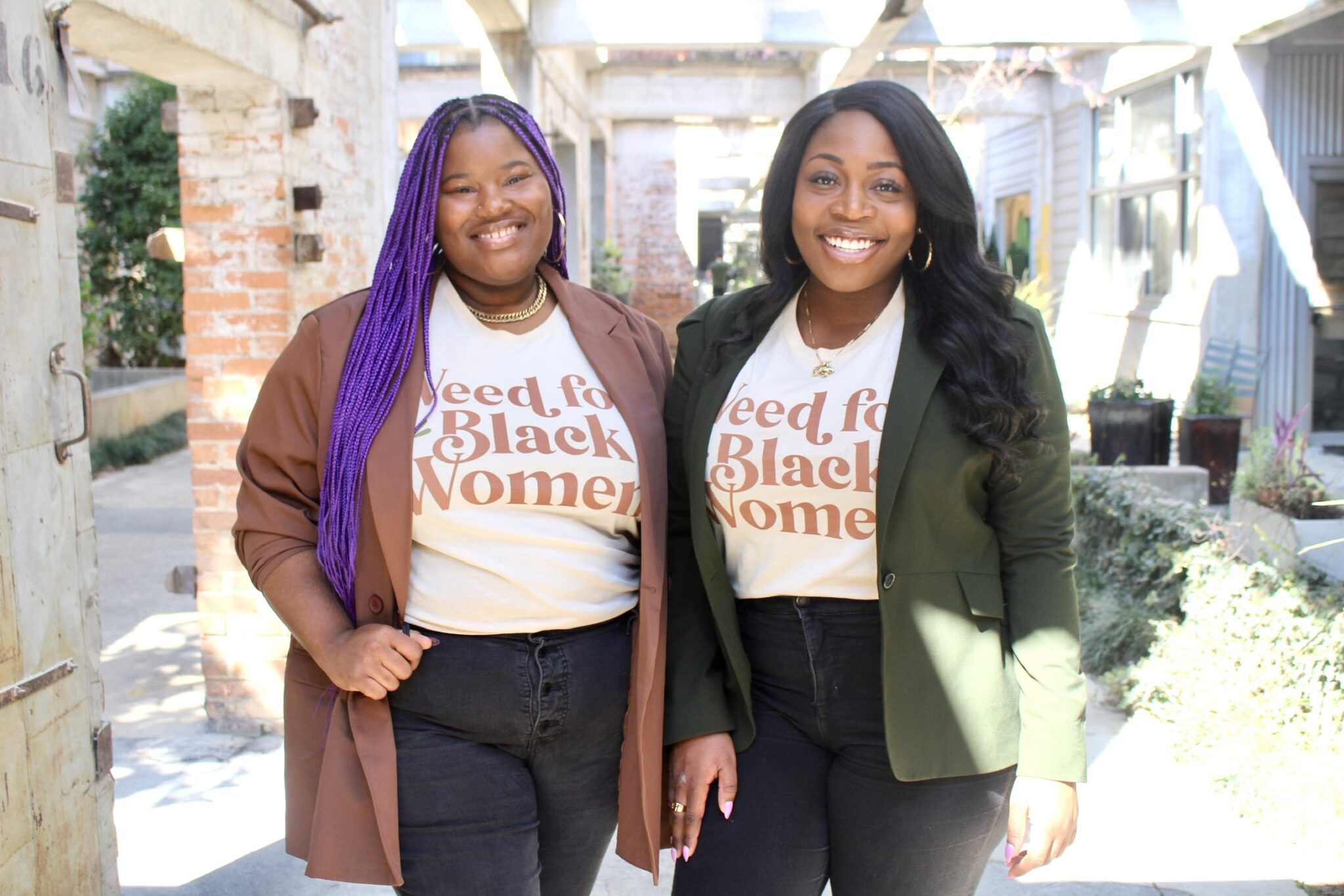
Gbemi Maiyegun and Jayde Powell were working in branding for a cannabis company and realized something was amiss: Too much stigma, too many stereotypes, and not enough spaces for Black women to talk freely about weed.
They linked up to create Weed for Black Women, a community and media hub educating people about the power of the plant, sharing career opportunities, and destigmatizing consumption (they’ve also got cute merch). Maiyegan and Powell have since grown their community to more than 55,000 members, and are making sure Black women feel empowered to explore cannabis without the side order of shame.
But catering to Black women in a white, male-dominated industry has introduced backlash. “When we first started Weed for Black Women, we got a few messages asking us why we didn’t create a ‘Weed for White Women’ or ‘Weed for White Men,’ and remarks about us perpetuating negative stereotypes about Black women,” the duo tells Sweet July. Thankfully, they’ve let the haters motivate them. “We’ve learned a lot about our community and created a safe space for people to share their questions, highlight their love for weed loudly and proudly, and learn more about its benefits.”
With 20 years of marketing experience between them, Maiyegan and Powell clearly know their audience. They also have solid advice for others trying to shift the industry: “Focus on your mission and vision, using them as guides during the moments you find challenging,” they say. Oh, and: “When in doubt, blow a tree. The weed may enlighten you.”
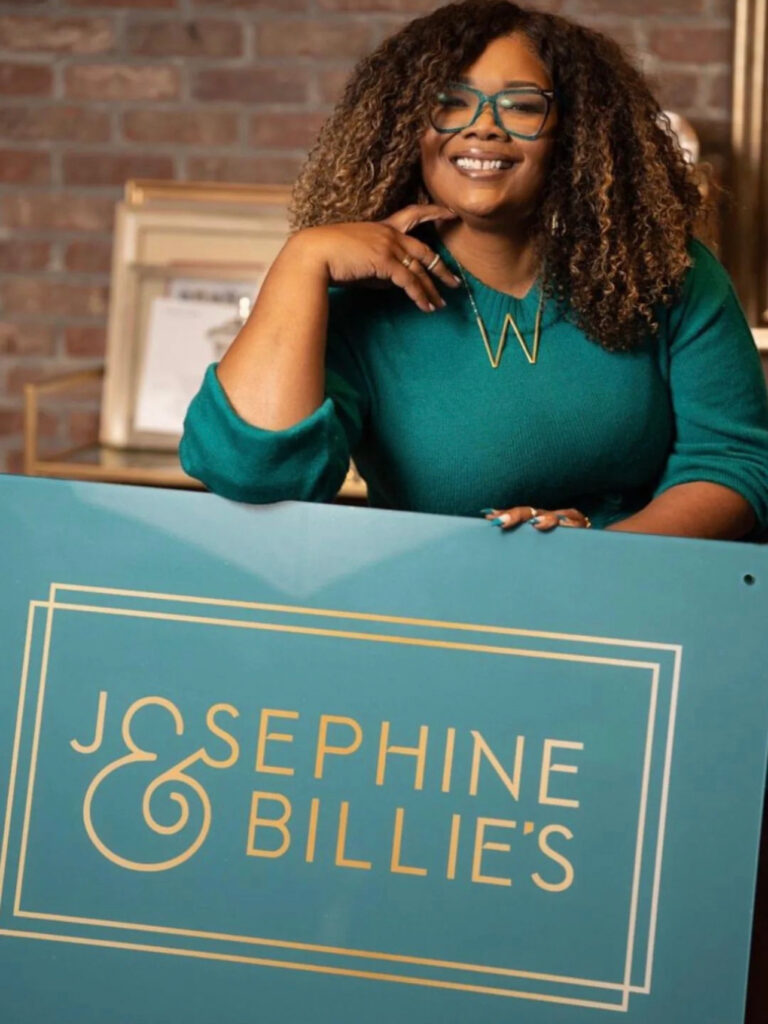
“I came to cannabis late in the game,” says Whitney Beatty, CEO and founder of the speakeasy-inspired LA dispensary Josephine & Billie’s. “I was raised in the ‘80s; Nancy Reagan told me to say no to drugs and I believed her.”
After Beatty was diagnosed with anxiety, she changed her tune. “I was able to find a regimen that worked for me, and I became passionate about helping others, especially women of color, do the same.”
Opened in 2021, Josephine & Billie’s (named for the legendary entertainers and weed smokers) is a first-of-its-kind dispensary experience inspired by the once-thriving “tea pads” Black people frequented during the 1920s and ‘30s, where you could purchase marijuana for 25 cents or less. Along with educational artwork, a terpene bar, and a Jazz Age vibe, the shelves are stocked with products from minority-led businesses. Josephine & Billie’s made news as the first investment from Jay Z’s The Parent Company—but even with the stamp of approval from hip-hop’s first billionaire, Beatty admits that the cannabis industry can be “incredibly difficult.”
“VCs are giving 3 percent of their money to women-led businesses, and for women of color that number drops down to .0006. You have to come in ready to fight to survive against multi-state operators [with] millions to burn.”
Even so, Beatty is proud of the kinship Josephine & Billie’s has built with their community and peers. They recently celebrated Black History Month with the Black Box initiative, partnering with various Black-owned dispensaries and cannabis brands for a curated box of goodies. “It was great being able to share insights on brands people may not be familiar with and get them new customers,” she says.
Much like the women who bear the dispensary’s name, Whitney Beatty is raising the bar, making her own rules, and bringing the rest of us along for the ride.

